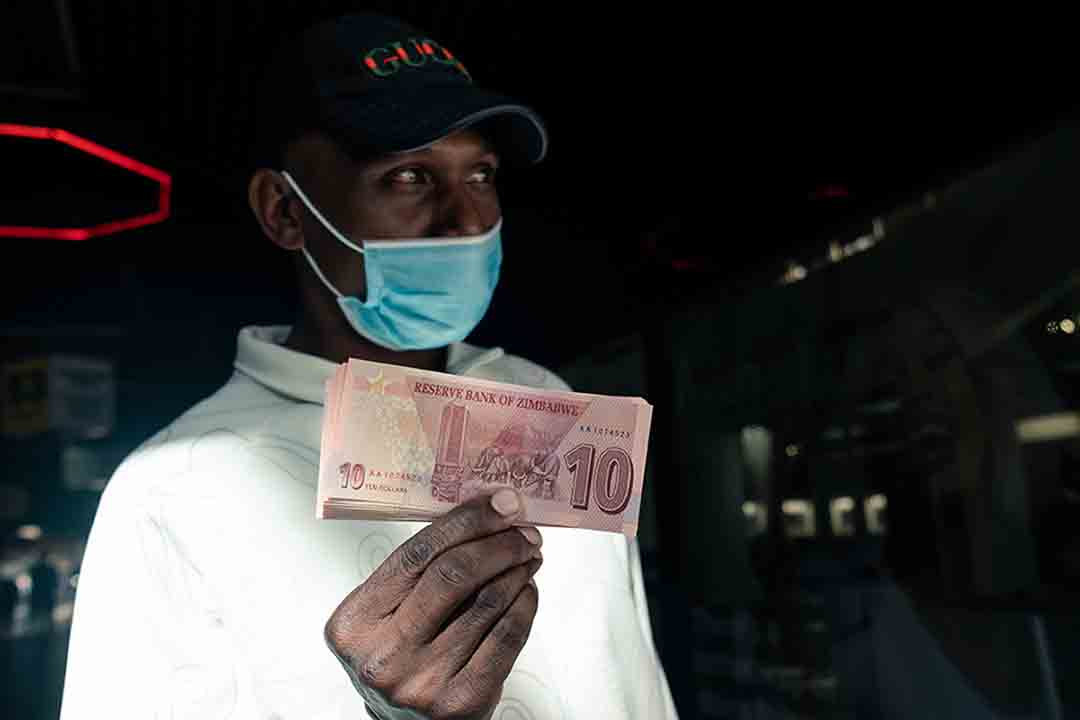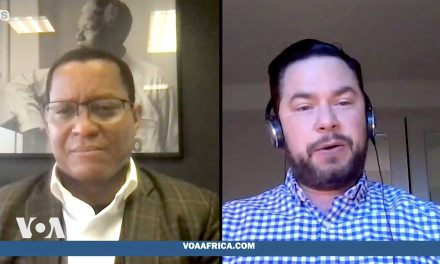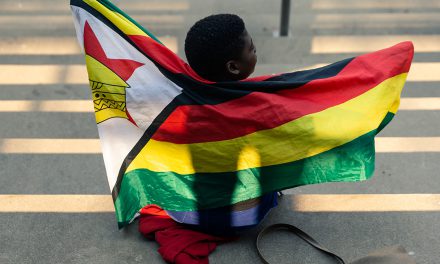The Reserve Bank of Zimbabwe, which has also closed the stock exchange over forex concerns, has hit people already losing livelihood options during the Covid-19 lockdown hard
The Zimbabwean government has, for a prolonged period, been engaged in a losing battle to stem illegal foreign exchange market activities. As has been the fashion, the regime has blamed runaway inflation and spiraling price increases on nefarious activities by “market saboteurs”.
Among these innumerable efforts, in the first week of June, the Reserve Bank of Zimbabwe (RBZ) threatened to embark on an unusual exercise. It sought to pursue illegal foreign currency dealers via the surveillance of WhatsApp groups through its financial intelligence unit, in collaboration with the police, banks, mobile-money service providers and relevant regulatory agencies. It threatened to bar and freeze suspects’ mobile numbers and accounts. This proved impossible.

A man shows a wad of the new Zimbabwean ten-dollar notes received from an ATM outside a bank in Harare on May 20, 2020. The Reserve Bank of Zimbabwe introduced this higher denomination bank note into circulation together with the Zimbabwean two-dollar and Zimbabwean five-dollar notes to ease perennial shortages of cash experienced in the country. Photo JEKESAI NJIKIZANA/AFP
On June 23, the RBZ then introduced a foreign exchange auction system (FEAS), which resulted in a move from a fixed exchange rate on the interbank market, which had, since March, been pegged at one US dollar to 25 Zimbabwe dollars (ZWL). After the introduction of the FEAS, the US dollar is now officially trading at 57 ZWL, against a black-market rate of between 80 and 100 ZWL.
On June 26, three days after the introduction of the FEAS, the permanent secretary in the ministry of information and publicity, Nick Mangwana, announced a ban, with immediate effect, on all mobile-money transactions (MMTs) and trading on the Zimbabwe Stock Exchange (ZSE). These drastic measures were described as making way for “intrusive investigations” into illegal dealings linked to the foreign currency black market, in which EcoCash is cited as the “centre pivot”.
In terms of market share, EcoCash, a subsidiary of Econet, accounts for about 97% of Zimbabwe’s mobile-money services. In addressing a crucial gap in Zimbabwe’s cash crisis, MMT services have, nonetheless, made the country’s economy vulnerable to a multiplicity of illicit foreign currency activities.
That said, the RBZ must not lose sight of its contributory role to this crisis through its (mis)management of the nation’s banking system that led to the liquidity crisis in the first place. This birthed and nurtured the mobile-money system that has since spiraled off its radar and, hence, out of its control.
Like any other stock exchange, the ZSE serves as a critical link for investors in the country. The loudest, yet most unfortunate, message from the temporary ban on its trading is that Zimbabwe is not only closed for business but also has no regard for investors’ property rights. Indeed, typical of the proverbial “burning down the house to kill a rat” or “throwing the baby out with the bath water”, this drastic measure is not good for investor confidence.
Further to this looming ZSE national catastrophe, the repercussions of which are yet to fully play out, is the plight of citizens already burdened by a loss of livelihood options during this indefinitely extended Covid-19 lockdown, that is most concerning. After the shock announcement of a blanket suspension of mobile-money services, the RBZ emerged, seemingly to avert a crisis, and reviewed the ban. This reviewed statement indicated that the ban is on MMT agents and merchant mobile-money account holders, while individual transactions up to a maximum of 5,000 ZWL are permitted.
Despite this reversal of the blanket ban and the assurance given by RBZ, Mangwana’s utterance has led to anxiety and a loss of confidence, with some street vendors and supermarkets already declining mobile-money payments.
For citizens battling a worsening economic crisis under the lockdown, this unfortunate development further impoverishes people, most of whom are Econet subscribers, who constitute an unbanked population that has found relief in transacting through mobile-money services.
For the few that are banked, the protracted liquidity crisis has seen citizens brave endless days and nights in long, winding queues in an effort to secure limited withdrawals each week. It is not unusual to leave the bank empty-handed even after dedicating oneself to these queues.
Apart from the often prohibitive costs associated with opening and maintaining a bank account, MMTs have offered a lifeline amid Zimbabwe’s protracted liquidity crisis. The Covid-19 context has also increased the demand for mobile-money services. This is because in light of the increasing levels of police abuse and brutality, they are a safer option in the current context in which citizen mobility, even for access to essential services, is restricted.
MMT services have also fulfilled transacting needs within an already failing banking sector, which, due to Covid-19 social-distancing regulations, has been operating below capacity. The digitalised transacting on mobile-money platforms offered by EcoCash, OneMoney, MyCash and Telecash have come to the rescue of consumers.
Last Friday’s announcement is evidence of a huge climbdown by the RBZ. Mangwana retweeted the climbdown with no hint of irony. This announcement has the potential to decimate what is left of Zimbabwe’s meagre economy and points to a governance system that has failed to subordinate itself to the rule of law.
The government should manage its communications system and segment information outflows so that announcements are delivered by the appropriate authorities, in this case the RBZ and the US Securities Exchange Commission (SEC). Since this is not the first example of such a case in Zimbabwe, until such time as public officials are brought to publicly account for their utterances, with consequences, not much reform can be expected in this regard.
As observed by telecommunications expert Dennis Magaya, the government’s failure to contain illegal foreign currency activities confirms a “widening gap” between a fast-changing digital world and Zimbabwe’s current monetary policy framework. This should be subject to regular review, in line with prevailing digital advances, to ensure that while monetary operations are not beyond its purview, they remain investor- and citizen-friendly.
A long-term solution to Zimbabwe’s liquidity crisis, which inevitably fuels the illegal foreign currency exchange market, must be found. Beyond the concerns of manipulation and illegality and hyperinflation as a result of money supply mismanagement, the latest crackdown compounds already immeasurable suffering for the majority of Zimbabwe’s citizens.
This article first appeared on Business Day here
Sikhululekile Mashingaidze entered the governance field in Zimbabwe while she was a part-time enumerator for the Mass Public Opinion Institute’s diversity of research projects during her undergraduate years. She has worked with the Habakkuk Trust, Centre for Conflict Resolution (CCR-Kenya), Mercy Corps Zimbabwe and Action Aid International Zimbabwe, respectively.











